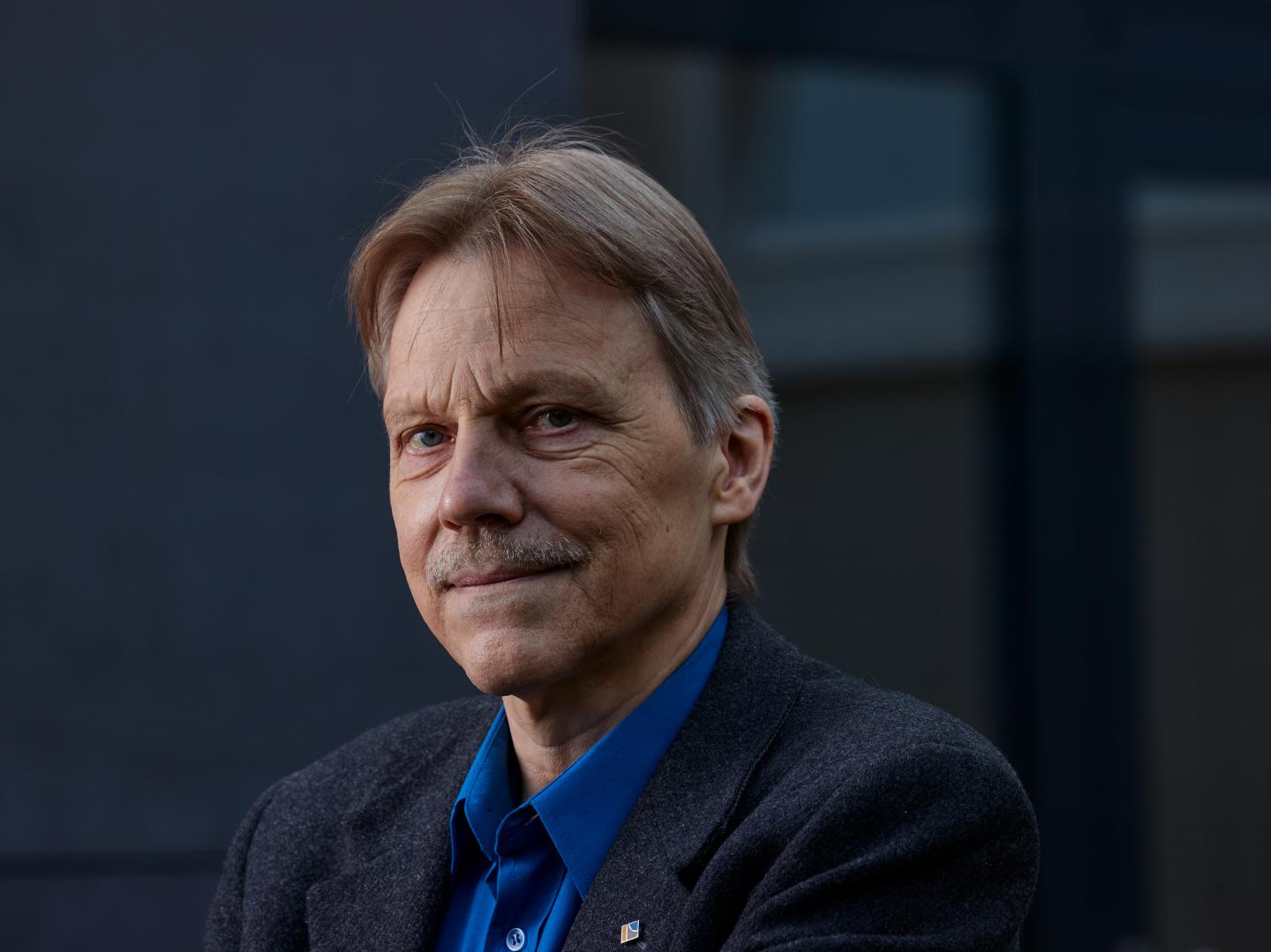The European Union is funding the physics professor at the University of Bonn with about 2.3 million euros

Credit: © Volker Lannert/Uni Bonn
What happens when strange quarks are inserted into atomic nuclei? Which “habitable” universes are theoretically possible? These are just some of the questions Prof. Dr. Ulf-G. Meißner from the Helmholtz Institute for Radiation and Nuclear Physics at the University of Bonn wants to investigate. For this project, the researcher receives an Advanced Grant from the European Research Council (ERC). Funding for the project, in which the Forschungszentrum Jülich is also involved, amounts to about 2.3 million euros.
More than 99.9 percent of the mass of matter in the universe consists of atomic nuclei. The chemical elements differ in the number of protons and neutrons in their nuclei. How many protons and neutrons can be added to an atomic nucleus before it becomes unstable? What happens when strange quarks are inserted into a nucleus? How much can we change the fundamental parameters of the strong interaction to still produce enough elements that are relevant for life and a “habitable” universe?
Major implications for the stability of the universe
These kinds of theoretical questions with major implications for understanding the stability of our universe are what Prof. Dr. Ulf-G. Meißner from the Helmholtz Institute for Radiation and Nuclear Physics at the University of Bonn is working on in the EXOTIC project (Emergent Complexity from Strong Interactions). The European Research Council ERC is funding the project with an Advanced Grant. Over the next five years, around 2.3 million euros will be invested in the project, in which Forschungszentrum Jülich is also involved.
“The Jülich Supercomputing Centre will provide essential computing time on the JURECA-DC supercomputer, which should make it possible to perform calculations with an accuracy that previously seemed unattainable,” says Meißner. The researcher is also a member of the Transdisciplinary Research Areas “Mathematics, Modeling and Simulation of Complex Systems” and “Building Blocks of Matter and Fundamental Interactions” at the University of Bonn.
Numerous awards
Meißner is a professor of theoretical physics at the University of Bonn and is also director of the IKP-3 and IAS-4 institutes at Forschungszentrum Jülich. The researcher has received numerous awards, including the 2016 Lise Meitner Prize of the European Physical Society, the Distinguished Scientist Award of the Chinese Academy of Sciences, and an honorary doctorate from Ivane Javakhishvili Tbilisi State University in Georgia.
The Rector of the University of Bonn, Prof. Dr. Dr. h.c.. Michael Hoch, congratulated the award-winning physicist on his funding: “The ERC grants are among the most important prizes for researchers of all. The fact that Ulf-G. Meißner, one of the world’s most distinguished minds in his field, receives this award is an outstanding confirmation of his work, on which I warmly congratulate him on behalf of the University of Excellence Bonn.”
Yet another funding commitment for Bonn was announced today in Brussels: Prof. Dr. J. Anton Zensus, Director at the Max Planck Institute for Radio Astronomy in Bonn, also received a funding commitment from the ERC. Prof. Hoch says: “We congratulate very warmly on this award! Both ERC grants are also a joint success of our institutions, which are closely linked in the Bonn Research Alliance BORA, and of Bonn as a science location.”
###
Media contact:
Prof. Dr. Dr. h.c. Ulf-G. Meißner
Helmholtz-Institut für Strahlen- und Kernphysik
Universität Bonn
Tel. +49-228-7323-65 or -66
E-Mail: [email protected]
Media Contact
Prof. Dr. Dr. h.c. Ulf-G. Meißner
[email protected]
Original Source
https:/





